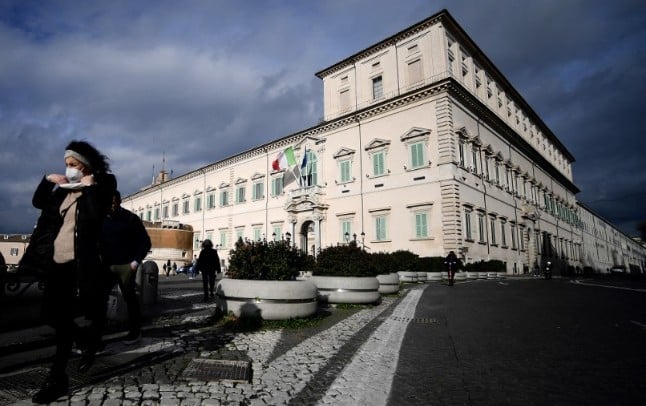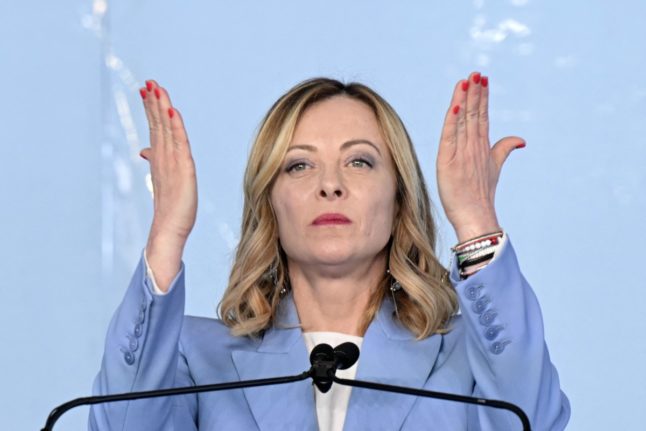1. Secret ballots
The president is elected for a seven-year term by an electoral college comprising 1,009 people. It is made up of members of the two chambers of parliament — 630 MPs and 321 senators — plus 58 delegates of Italy’s regions.
In the first three rounds of voting, the winner must secure at least a two-thirds majority. From the fourth round, an absolute majority is enough.
EXPLAINED: How do Italy’s presidential elections work?
Ballots are cast in secret and in person in the debating hall of the lower Chamber of Deputies, with only one round a day planned due to coronavirus rules.
With Covid-19 currently widespread in Italy, a drive-through voting station has been set up in the car park to allow those with the disease to cast their ballots from their vehicles.
2. Presidential powers
The president is head of state and upholds the constitution of Italy, which became a republic following a referendum after World War II.
Key roles include naming the prime minister and, on the latter’s advice, government ministers.
The president has the power to dissolve parliament, in consultation with the speakers, and ask it to reconsider legislation.
Arbitrating in this way becomes crucial in times of political crisis — it was outgoing President Sergio Mattarella who brought in Draghi as premier in February 2021.
The president also appoints one third of members of the constitutional court and has the right to pardon.
3. The candidates
Anyone with Italian citizenship who is 50 or older is eligible, and with no formal candidate list the result is notoriously hard to predict. Draghi — a career economist with no political affiliation — appeared to hint at his availability in December, calling himself a “grandfather at the service of the institutions”.
Former premier Silvio Berlusconi, the 85-year-old leader of the right-wing Forza Italia party, was campaigning for the post but pulled out on Saturday.
Other potential candidates include former premiers Giuliano Amato, 83, and Paolo Gentiloni, the 67-year-old EU commissioner for the economy, and former Chamber of Deputies speaker Pier Ferdinando Casini, 66.
Many are hoping for Italy’s first female president. Current and former justice ministers, Marta Cartabia, 58, and Paola Severino, 73, respectively, are both tipped for the job, as is Senate speaker Elisabetta Casellati, 66.
4. Some surprises
The secret nature of the ballot has thrown up some surprises in the election of 12 presidents since 1948 — only one of whom, Giorgio Napolitano (2006-2015), was elected for a second term.
The role does not traditionally go to a party leader, but someone viewed as above the political fray.
READ ALSO: How much power does the Italian president actually have?
However, the favourite going into the race often comes away empty-handed.
In 2013, former premier Romano Prodi was nominated by the centre-left Democratic Party but was betrayed by some of his supporters and Napolitano won.
5. Former papal palace
The president’s formal residence is the Quirinale palace, once home to the popes and kings of Italy. Perched on the hill of the same name, the sprawling 110,500-square-metre building is one of the largest presidential palaces, surpassed only by Turkey’s.
Construction began in 1573 for the summer residence of the popes. It became their base as secular rulers, as opposed to the Vatican, which was their seat of spiritual power.
Around 30 popes resided there, from Gregory XIII to Pius IX.
Under French rule, Napoleon ordered renovations to make it his Roman residence, but never set foot there.
The Italian royals lived there from 1870 until the declaration of the republic in 1946, when it became the residence of the head of state.



 Please whitelist us to continue reading.
Please whitelist us to continue reading.
Member comments